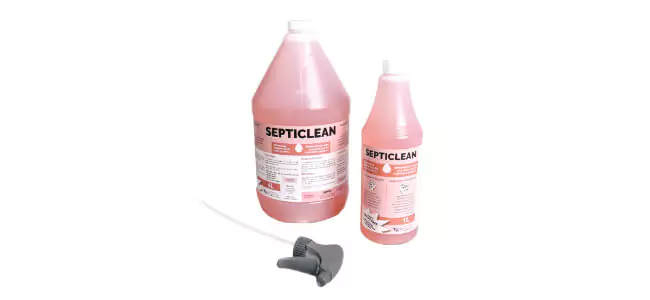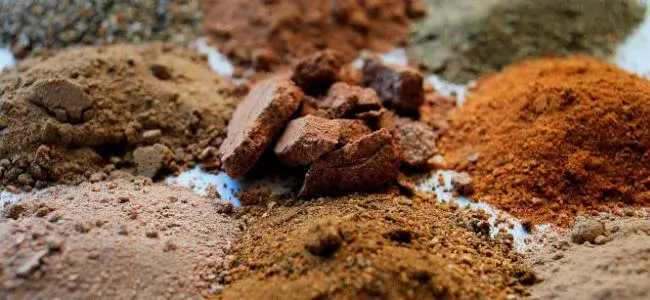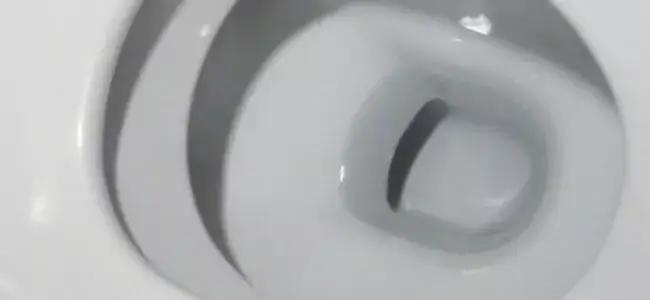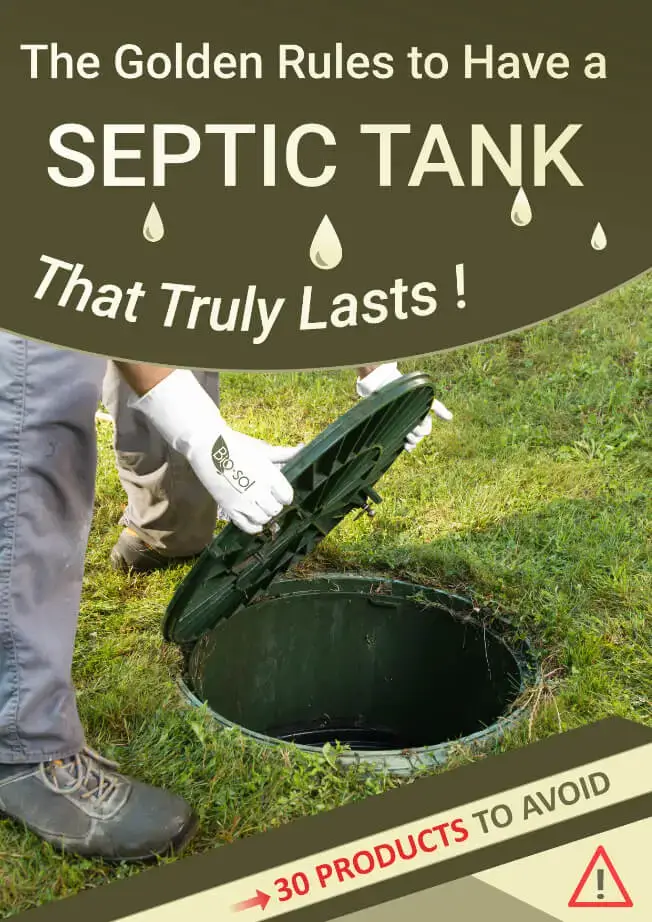Enzymatic cleaner and the use of bacteria when cleaning

TABLE OF CONTENTS
The terms microbial, bacterial, biological, or probiotic are often used to refer to a cleaning product that uses bacteria and bacterial enzymes to improve the effectiveness of the cleaning process. Learn below how enzymatic cleaners and adding bacteria is a verty good substitute to chemicals.
One of the main benefits of using bacteria in household cleaners is that they are safe for humans, pets and the environment. But there are many other benefits which include:
- Effective odor removal
- Deep cleaning
- Grease removal
- Drain and grease trap maintenance
- Pest control
- Waste degradation
- Increase fabric whiteness
- Removal of stubborn stains
The cleaning function of bacteria is based on their normal mode of operation. Bacteria typically work by breaking down a substrate and this is the quality that gives bacteria the cleaning ability. Enzymes might be efficient initially but bacteria will do a better job when all is said and done. This is because bacteria will continually create enzymes which will help in the breaking down of the organic matter. Various hospitals in North America, Italy, and Belgium have already adopted the use of bacteria in household cleaners and they have registered very good and desirable outcomes.
What’s wrong with chemical cleaning products?
Most of the chemical-based cleaning products are mass-produced in industries resulting in the emission of harmful gases. Because they are manufactured from chemicals, these cleaning products are also non-renewable. As if not enough, some of these products are hazardous and have far-reaching consequences on the environment, humans, pets and even the useful microbes. Continual use of chemical-based cleaning products can also cause problems because most of these products are biocides. Biocidal sanitizers are largely used in homes and health establishments because of their antimicrobial properties. But the problem with their sustained use is they tend to increase the antibiotic resistance to lots of bacteria – even the good strains.
Not all bacteria strains are the same. Some are very susceptible while others are quite adaptive to the environment. Some strains have a very fast growth rate while others take longer to grow. But the most important difference is that some strains are harmful while some are very beneficial to us. Only the strong and adaptive strains of bacteria survive the onslaught of sustained usage of chemical cleaning products. The problem with this is that some of the harmful might survive while the beneficial bacteria die. Meanwhile, the surviving bacteria will multiply quickly and this artificially modified environment may easily present a new set of problems. For instance, if the remaining bacteria are pathogenic, this problem is made worse with every cleaning.
Advantages of using bacteria and enzymatic cleaners
Biological cleaners offer a more sustainable way of cleaning as opposed to their chemical counterparts. The main reason is the process of making of enzymatic cleaners is more environmentally friendly than that of chemical cleaners. When making cleaning products that are bacteria based, any addition of flocculants can only be done in concentrations that will not negatively impact the livelihood of the bacteria. A purely bacterial cleaning agent might not be as effective as the chemical ones and that is why it’s necessary to maintain a healthy balance between flocculants and bacteria.
Another important advantage of enzymatic cleaners is that they add to the environment as opposed to taking from it. This results in the boosting of the bio-film. Bio-film refers to the increased beneficial bacteria in a region which helps the bacteria to be more effective. For instance, the continual use of bacterial cleaners creates a biofilm on the surface and this means that the bacteria will continue “cleaning” the surface even after the actual cleaning is over. The end result is a sustained cleaner environment that is free of odors. It also reduces the cost and frequency of cleaning.
Last but not least, the use of bacterial cleaners helps in the reduction of allergens and this can be quite beneficial for both the home and office environments. The reduction of allergens in the environments makes the environment in the office or home safe for both the residents as well as the visitors. In other words, it creates a more pleasant environment to work or relax in.
How enzymatic cleaners using bacteria work?
We are sounded by microorganisms all around us, the majority of which are benign and even necessary for the environment, animals, and humans. These microorganisms live in a microflora. Microflora is a community in which the microbes communicate with each other and organize in the best way for their survival. For instance, microorganisms build biofilms which are shields that protect them from outside influences. This biofilm is responsible for the visible filth and bad odors that we often get in spaces. The film can also be a hideout for germs and lots of harmful bacteria.
Every environment has its own microflora which adapts to changes in the environment. For instance, if a surface provides all the necessary conditions to sustain 1 million microorganisms, the present microorganisms will ensure this maximum count is not exceeded. The microorganisms even leave some unoccupied space just to play safe. There is a continuous death and growth rate of bacteria and that helps to keep the numbers fairly constant week by week.
Bacteria are known to cause disease and that explains why most of the traditional artificial cleaners are made with antibacterial qualities. They work in two main ways – they clean or remove the filth (the food for organisms) and then they disinfect to kill the bacteria. But microorganisms are quite resilient and some of them adapt pretty well to changes in the environment. As a result, they are continually becoming resistant to antibacterial cleaners. And as they adapt, even microorganisms that were harmless are transforming into harmful varieties.
Whenever an antibacterial cleaner is used, most of the bacteria are killed immediately. But the few that manage to resist the cleaner multiply quickly and within no time, the surface will be filled with lots of bacteria that are totally resistant to the cleaner. This concept is referred to as the disinfection paradox and it results in the emergence of an unhealthy microflora.
The impact of cleaning products on septic tanks
As we have established, most of the cleaning products on the market are made on the premise of fighting bacteria. If you have a septic system, such products will not only kill the bacteria on the surfaces you are cleaning but they will also end up in the septic tank and kill the bacteria that your system depends on for the digesting of organic waste. This is why it is not recommended to use most of the commercial cleaning products. Here are some of the categories of cleaning products you should avoid;
- Antibacterial Soaps
- Chemical products
- Bleach
- Non-biodegradable gelatins for the toilet bowl
- Blue dye products for the toilet
- Chlorine blocks for the toilet
- Disposable cleaning wipes
At Bio-Sol, we have the best alternative to this harmful cleaning products. SeptiClean is an all-purpose enzyme and bacteria-based cleaner that can be used for cleaning all manner of solid surfaces in the home. Using this cleaning product is very simple – just spray it on the surface and the bacteria will do the rest for you. If you are dealing with very stubborn stains, allow it more time to work and it will get rid of the stains. Some of the stubborn stains it can remove include:
- Grease
- Hard water stains
- Rust
SeptiClean is safe for use in the sink, shower, bathtub, drains, cupboards, furniture, or any surface in the house. Place your order on our website and see the difference!
Conclusion
The solution to the diverse problems presented by chemical cleaners is to use bacteria in household cleaners. The bacteria in the cleaners will fill the empty spaces in the microflora and they will, therefore, prevent the replication of harmful bacteria. Because bacteria always maintain a constant count in the microflora, filling the empty spaces means the harmful bacteria will not continue to grow. As these bacteria die of old age, they are continually replaced with the good bacteria from your routine cleaning. This means that the probiotics will help you to achieve a sustainable and safe microflora. Additionally, because probiotic cleaners work by replacing rather than killing harmful bacteria, bacteria will not develop resistance.
OUR LATEST BLOG POSTS

Strange facts about septic systems
If you are a septic system owner, you might have heard all manner of myths. For instance, there is a common myth that throwing a dead cat in the septic tank can help rejuvenate bacteria and thereby make the septic tank more effective. But is this even true? In this article, we will not only answer that […]

Soils types and their impact on septic systems
SOILS TYPES AND THEIR IMPACT ON SEPTIC SYSTEMS However good your septic system is, it depends on the right soil type to complete the process of purifying the wastewater from your home. The soil type in the drainfield area will determine how well the effluent is filtered and if the water that is sent back to the […]

Avoid flushing these if you have a septic tank
Most homeowners wrongfully assume that their toilet can serve as some sort of garbage disposal. As a result, they end up flushing all manner of things in the toilets. Some of the things that are flushed down the toilet are actually innocent mistakes because homeowners think that is the right way to dispose of the products while in other cases, it is just a don’t care attitude. Whichever the case may be, flushing some of these things can result in septic system failure and it could cost you a fortune. We have rounded up some of the commonly-flushed products that you should never flush if you have a septic system.
PERFECT! I WOULD NEED...
Discover which products are the best for your needs!You can contact us at 1-800-378-6132 (toll free) or click on the following button to access our free online evaluation.
GET A QUOTE ONLINELog in to your account
Whoops! It happens sometimes...
CREATE A NEW ACCOUNT
CONGRATS!
You are now registered and ready to go. You can add and change any of your information on your client profile.
Unfortunately, we do not ship our products to the USA at the moment.
But, if you live in the United States and would like to order them, please fill in the form below. You will then be notified as soon as they are available in your country.
Thank you for your understanding!
Malheureusement, nous n’expédions pas nos produits en France pour le moment.
Mais, si vous êtes résident français et aimeriez les commander, remplissez s’il vous plaît le formulaire ci-dessous. Nous pourrons ainsi vous aviser aussitôt qu’ils seront disponibles dans votre pays.
Merci de votre compréhension!

-
30 products to avoid
-
What to replace them with
-
And everything you should know about your septic system
DOWNLOAD THIS FREE EBOOK!
Which email address should we send it to?


